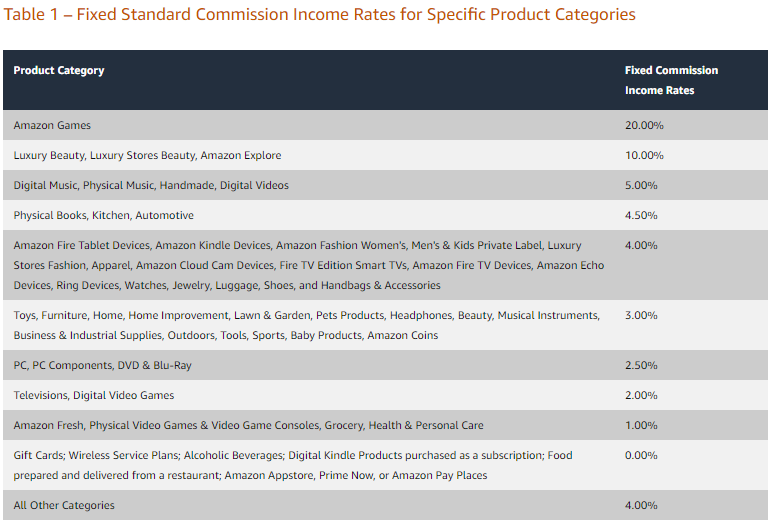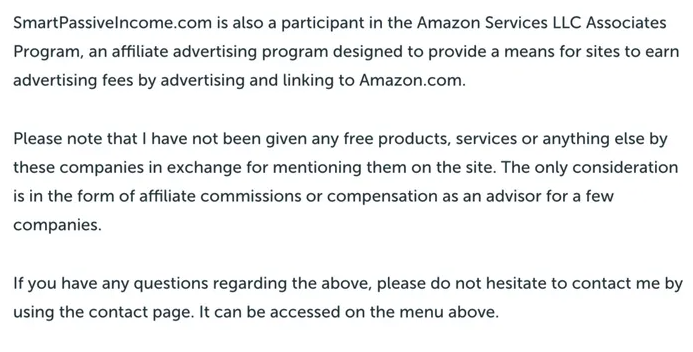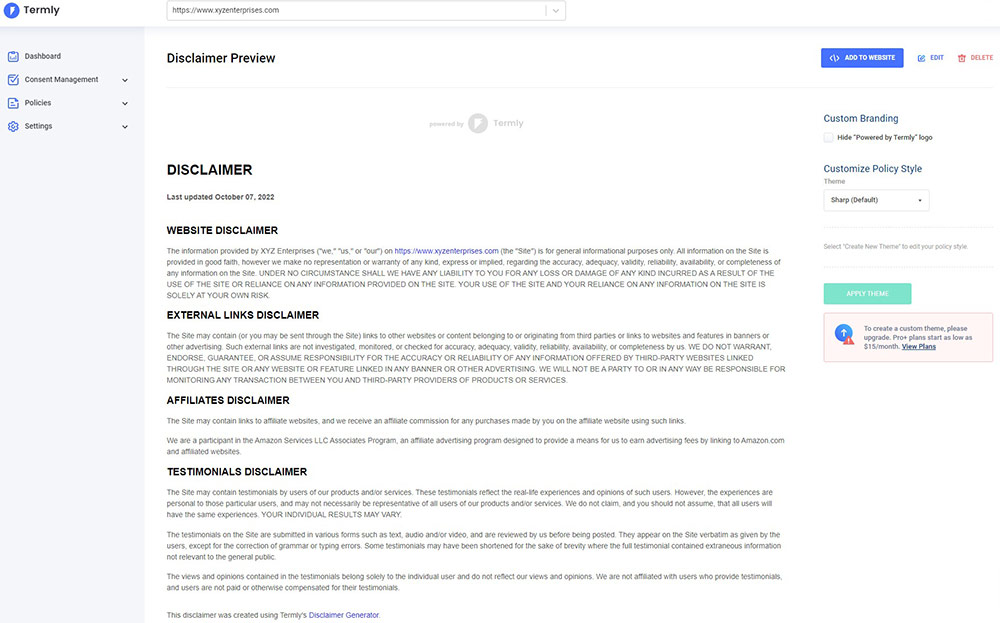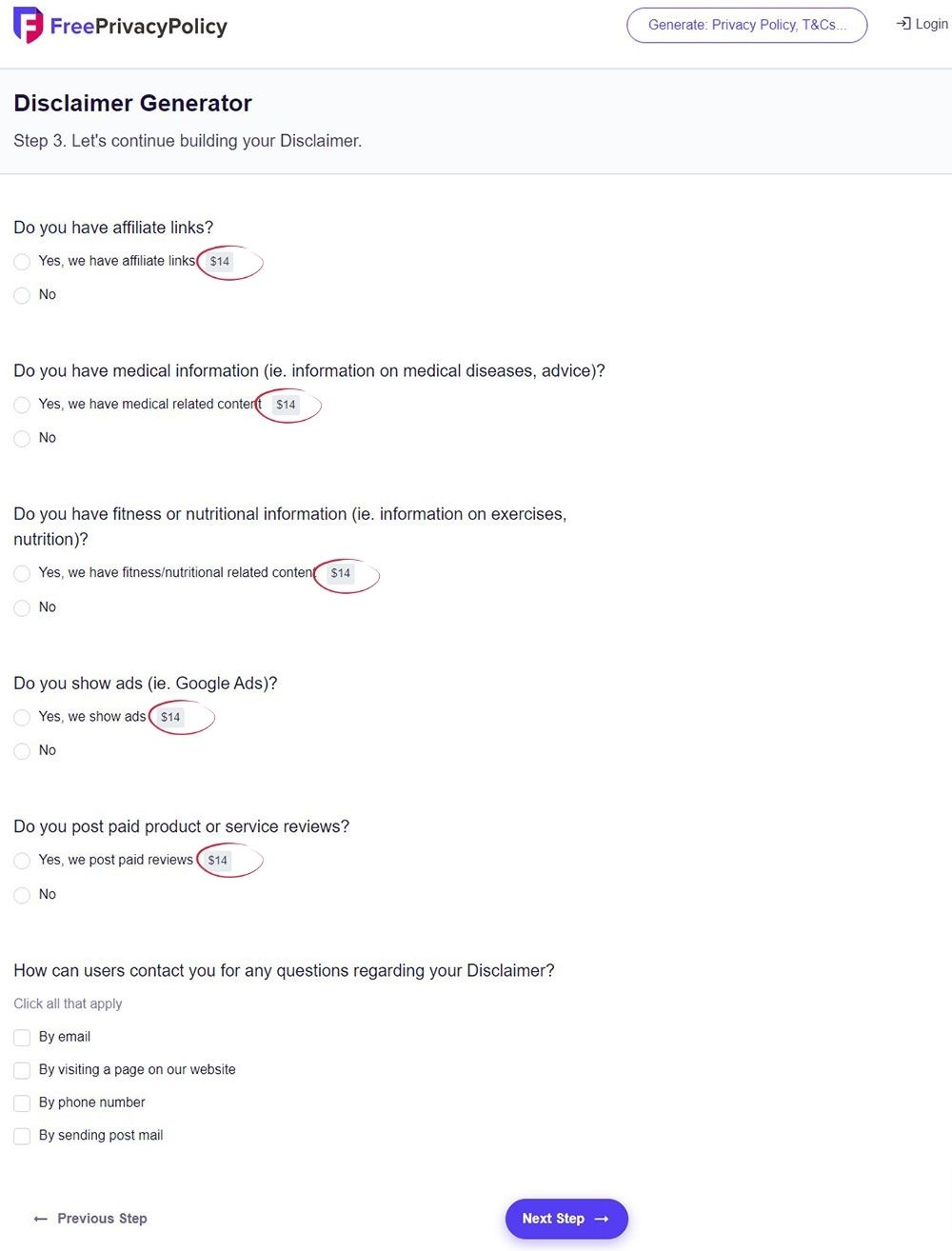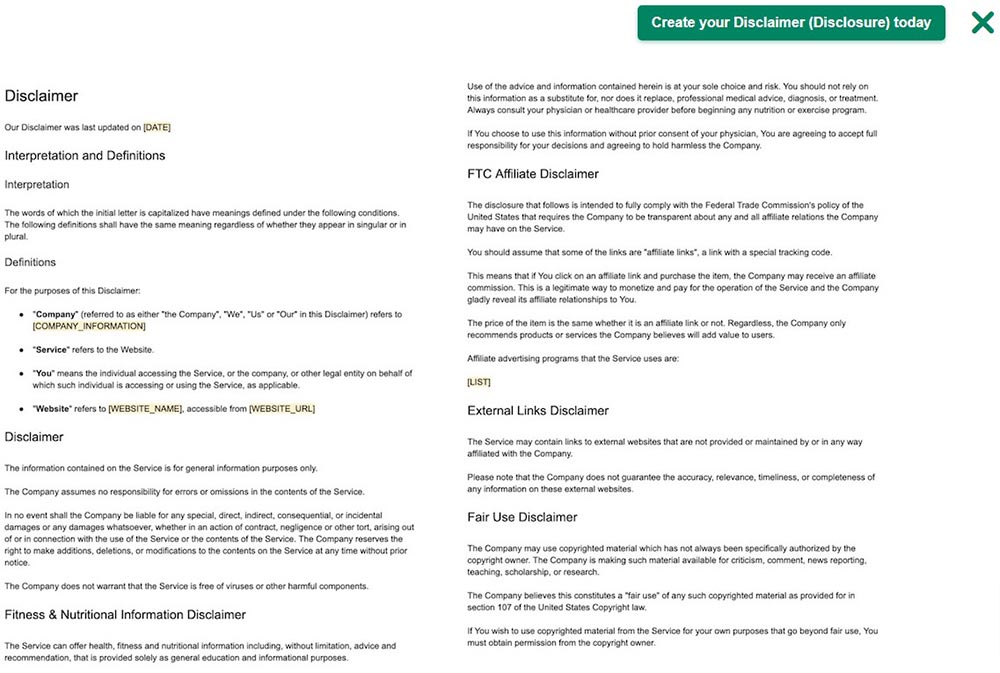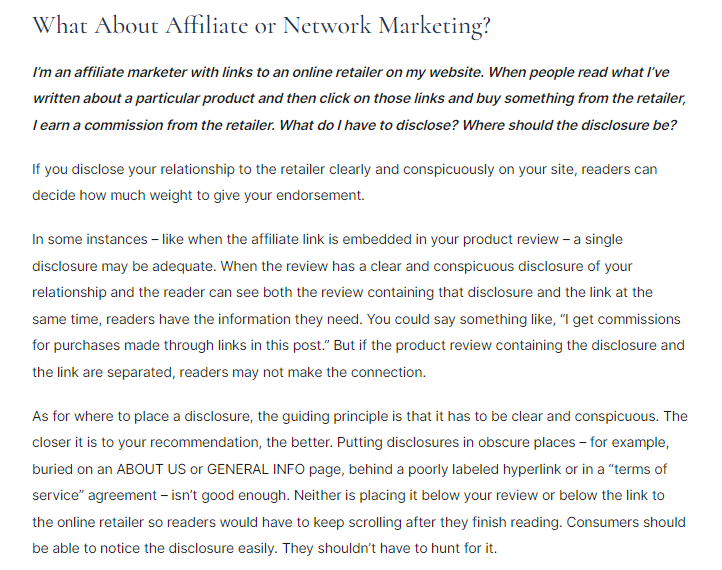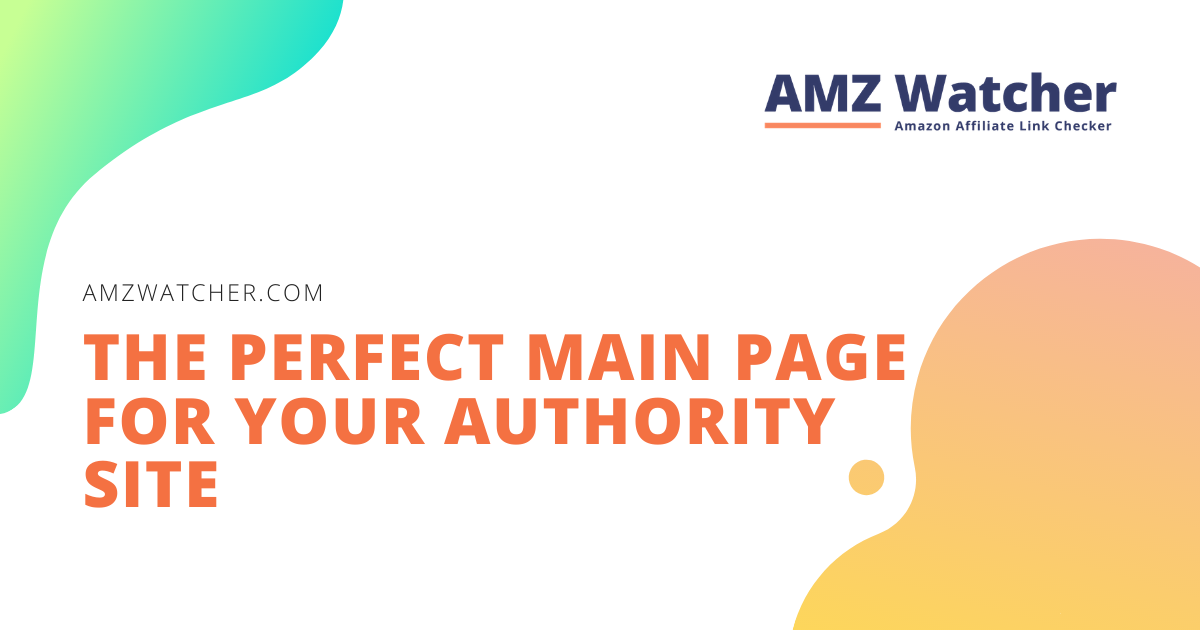To legally participate in the Amazon Associates program, you must display an Amazon affiliate disclaimer on your website.
When signing Amazon’s operating agreement, you agree to notify your website users of your relationship with Amazon. You need to inform people that you’re part of the program and will earn a commission if they purchase Amazon products through your website.
Failing to produce a disclaimer is a breach of your agreement. In this case, Amazon may remove you from the affiliate program, not pay any commissions due, and even take legal action against you.
Writing an Amazon associates disclaimer may seem a complex process. To make it easier, some websites generate the Amazon affiliate disclaimer text for you, which we’ll run through in this guide.
Contents
What is Amazon Associates?
The Amazon Associates Program is a marketing rewards program that helps businesses, bloggers, and content creators earn an income from their web traffic.
Program participants use Amazon’s tools to create and place affiliate links on their websites. Then, through marketing tactics, Associates direct people to their product recommendations.
If someone purchases through their links, they earn a commission from Amazon. The exact commission amount is determined by the category of product sold. Amazon summarizes it as follows:
As you can see, the Amazon affiliate marketing program can benefit both the Associates and Amazon. Program participants earn commissions for their recommendations, while Amazon sells more products.
While this arrangement is convenient, it requires transparency and disclosure of the nature of the agreement. This is done using an Amazon affiliate program disclaimer.
What is the Amazon Affiliate Disclaimer?
An Amazon affiliate disclaimer is a notice declaring your participation in the Amazon affiliate program. You’re required to display it on your website to comply with regulations set out by the US Federal Trade Commission.
This requirement is so that you do not misrepresent your relationship with Amazon. While you’re endorsing Amazon products in your marketing efforts, Amazon isn’t endorsing you in return. You can’t imply otherwise to consumers.
When signing up for Amazon Affiliate status, it’s best to review the company’s Operating Agreement. This offers a comprehensive breakdown of the nature of your affiliation. It helps you avoid missing out on crucial information that could create a misunderstanding in the future.
In a nutshell, section 5 of the operating agreement states that you are obligated to:
- Clearly identify your affiliate status on your website
- Display a jargon-free disclaimer that is readily accessible
- Include a variation of the phrase “As an Amazon Associate, I earn from qualifying purchases.”
Below is an example of how an Amazon Affiliate Disclaimer may look. SmartPassiveIncome.com have simply worded, jargon-free text on a landing page to notify users of their affiliation:
Drafting an affiliate disclaimer on your own be a bit intimidating. After all, it’s a legal document, and the consequences of getting it wrong can be serious.
It’s not just about following Amazon’s rules and regulations. Failing to create a sufficient disclaimer puts you at risk of breaking the law. Violating US advertising law can result in a fine of over $40,000.
That’s why some websites offer services that generate Amazon Affiliate link disclaimers for you. There are many such services, and each offers a slightly different set of features.
Five Amazon Affiliate Disclaimer Generation Sites
Each of the disclaimer sites listed offers a suite of features designed to generate various policies and statements for your website or business. To help you make an informed decision, we’ll go over the most important things to consider.
1. Termly.io
Our first disclaimer generation site is Termly. Termly provides businesses with a straightforward way to comply with the rules regarding data regulation standards.
It markets itself as an all-in-one solution for generating all your legal policies and more. Its mission is to make data compliance simple while also offering comprehensive features.
List of Products:
- Privacy policy generator
- Terms and conditions generator
- Disclaimer generator
- Cookie consent manager
- Return policy generator
- Shipping policy
Pricing:
The Starter option includes limited access to the most important features Termly has to offer. Priced at $10 per month (paid annually), this option is for businesses looking for essential protection. You can generate two legal policies and get up to 10 policy revisions for one website.
The Pro+ option offers unlimited access to any and all policy generation for $15 per month (annual pricing). Pro+ also scans your website weekly (as opposed to monthly for Starter) to ensure policies stay updated.
Does it Offer Free Services?
Termly offers a free Basic option designed for startups still in the development stage. It includes one policy with up to five revisions, which can help users set up their businesses. This option isn’t recommended for larger or more established companies.
Here’s an Amazon affiliate program disclaimer example produced in seconds on the Basic option:
Summary
Termly offers a standard array of features, although established businesses may find the Basic and Starter options restrictive.
For Associates, the free disclaimer generator can produce a stock disclaimer for your Amazon affiliate links. If you’ve got more legal bases to over, i.e., to include a medical disclaimer, you’ll likely need to customize the policy further.
2. FreePrivacyPolicy.com
FreePrivacyPolicy (FPP) offers a similar range of features to Termly’s. While the latter provides a single free policy, FPP offers a broader range of basic policy templates for free. Overall, it’s a self-service style website that makes it easy to generate the policies you need.
List of Products:
- Privacy policy generator
- Terms and conditions generator
- Cookie consent
- Cookies policy generator
- Return & refund policy generator
- Disclaimer generator
- EULA Generator
Pricing:
While you can generate a range of free policies, certain customizations on FPP are paid for, including the Amazon affiliate disclaimer template. You’ll know exactly how much this is as you create your policy, but as a ballpark, most of the chargeable add-ons are $14 once off.
Does it Offer Free Services?
FPP does offer a free standard policy generator. All of the products above are available at no cost.
Summary
FPP has a comprehensive list of policies it can generate, mostly for free. That said, to create an affiliate link disclaimer for Amazon, you’ll need to pay at least $14 once-off.
If you’re a small business or are just starting out, using FPP can help keep costs down as you won’t be tied into monthly app payments.
3. PrivacyPolicies.com
Unless you’re a lawyer, drawing up accurate legal documents is pretty much impossible to do. Using PrivacyPolicies, you can create a disclaimer for Amazon Associates that meets the requirements for your country.
PrivacyPolicies hosts your disclaimer and allows you to integrate and link to it from anywhere, including your website and social pages.
List of Products:
- Privacy policy generator
- Terms and conditions generator
- Cookie consent
- Cookies policy generator
- Disclaimer generator
- EULA generator
- Return & refund policy generator
Pricing:
Unlike Termly, PrivacyPolicies doesn’t rely on a subscription model. Instead, users pay for customizations from their standard generated policies. Like FreePrivacyPolicy, it will cost at least $14 for a disclaimer for Amazon affiliate purposes.
Below is an Amazon affiliate disclaimer example taken from their website:
Does it Offer Free Services?
PrivacyPolicies offers limited versions of its premium features for free, but the Cookie Consent feature is free by default.
Summary
If you’re a small independent marketer or business that doesn’t need many documents, this option makes more sense than paying a subscription. The latter suits entities that frequently need to draft and edit policies.
4. Termsfeed.com
Termsfeed specializes in custom legal agreements and policies, allowing users to generate unique and professional documents. With an emphasis on ease of use and tailored needs, Termsfeed offers a bespoke experience.
List of Products:
- Privacy policy generator
- Terms and conditions generator
- Cookies policy generator
- Disclaimer generator
- EULA generator
- Return and refund policy generator
- Terms of service generator
- Terms of use generator
Pricing:
Termsfeed offers premium policies, where you only pay for additional optional clauses that you need. As you run through the wizard to build your policy, prices will be shown based on your requirements.
Does it Offer Free Services?
By default, all of Termsfeed’s features are free to use for legal policy generation. Note that the policies are stock standard and only provide a basic level of coverage.
Summary
For those generating simple legal agreements and policies, the free features of Termsfeed are hard to ignore. The additional customization options make Termsfeed’s offerings very competitive.
5. WebsitePolicies.com
WebsitePolicies includes many of the features that other sites offer. However, as part of the policy-drafting process, WebsitePolicies consults with lawyers, paralegals, and solicitors around the globe. So, you’re essentially getting the benefit of legal consultation without the typical costly fees.
List of Products:
- Acceptable use policy
- Cookie policy
- Disclaimer
- Privacy policy
- Refund policy
- Terms and conditions
Pricing:
There are two paid plans for generating your legal disclaimers and policies. These are the Premium policy and the Premium bundle.
For the Premium policy, you’ll pay a one-time fee for a fully-featured policy of your choice. It might seem pricey at $29.95 per policy, but it does include some great bells and whistles.
A Premium policy includes all the basic document templates along with a host of extras. These include a customizable theme, removable watermark, free lifetime updates, and detailed clauses.
The Premium bundle option includes a selection of Premium policies the site offers, including all benefits.
Within that, the Essential Premium bundle includes a disclaimer, terms & conditions, and privacy policy generation for $59.95. Meanwhile, the All-Inclusive Premium bundle includes all the policies and agreements offered by the site for $99.95.
Does it Offer Free Services?
WebsitePolicies offers a limited feature policy generation for free, but there are a few caveats. On top of lacking most of the features mentioned, the policy you generate may not be suitable for commercial use. This option is for users who want to try the service or need a simple policy.
Summary
The range of plans on offer allows you to find the option that suits your particular needs. Certainly, generating an Amazon affiliate program disclaimer in consultation with legal professionals will help give you peace of mind when protecting your interests.
How to Add the Amazon Affiliate Disclaimer to Your Site
It’s essential to have your disclaimer visible at all times on your website or content. This is so that you don’t mislead people about the nature of the link and why you’re providing it.
Therefore, include the disclaimer in a visible place on every page that contains affiliate links. Most place it at the header, and some on the footer with a link to a landing page with the full disclaimer.
The disclaimer should be highly visible on pages with product recommendations and preferably as close to the links as possible.
Examples of How and Where Affiliate Sites Place Links
Wirecutter places it on the header of their home page and in the header of pages that contain links:
PCPartPicker displays its disclaimer on product pages….:
….as well as in their website footer:
Amazon’s Affiliate Disclaimer Policy Requirements
According to Amazon, there are only a handful of things you have to include in your disclosure. The disclaimer must clearly::
- Highlight that you’re an affiliate
- State that you earn a commission when purchases are made via your links
- Confirm that you have no official relationship with Amazon (i.e., are not employed by them).
FTC Requirements
The Federal Trade Commission (FTC) requires all US-based companies to comply with their standards in order to operate legally. This includes promoting fair and transparent advertising through affiliate marketing.
In essence, to be compliant with FTC guidelines, you should:
- Reveal your relationship with Amazon
- Highlight your connection with the products you’re endorsing
- Ensure that your affiliate relationship is evident from the moment a person lands on your site
- Place disclaimers on all pages with links
- Avoid making positive claims about products if you haven’t physically tested them
- Ensure the disclaimer is clear, simple to understand, and easy to read
Here’s an excerpt from FTC’s website regarding the nature of affiliate disclosure:
FAQs:
How do I prevent Google from indexing my disclaimer statement?
Many website hosting platforms (such as WordPress) include a feature that tells search engines not to index your page. This involves invoking the ‘noindex’ command for your webpage.
First, you need to access your webpage’s backend. Then, navigate to the page containing your affiliate disclaimer.
From there, find the <head> section, and add the following:
<meta name=”robots” content=”noindex”>
Push the changes to update your website and voilá! The next time Google’s bots try to index your page, your disclaimer page will be skipped over.
What’s the difference between disclaimers and disclosures
While both serve as ways to inform people of pertinent information, disclaimers and disclosures aim to accomplish different things.
A disclaimer lays out information like the liability of the owners of a website when it comes to users. Detailing the way Amazon affiliate links work is a disclaimer since it describes your liability regarding the products you are advertising.
An Amazon affiliate disclosure states the intention or purpose of the website. It informs users that you are an Amazon Affiliate, describes what the site is about, and discloses that you’ll earn a commission when they purchase through your links.

